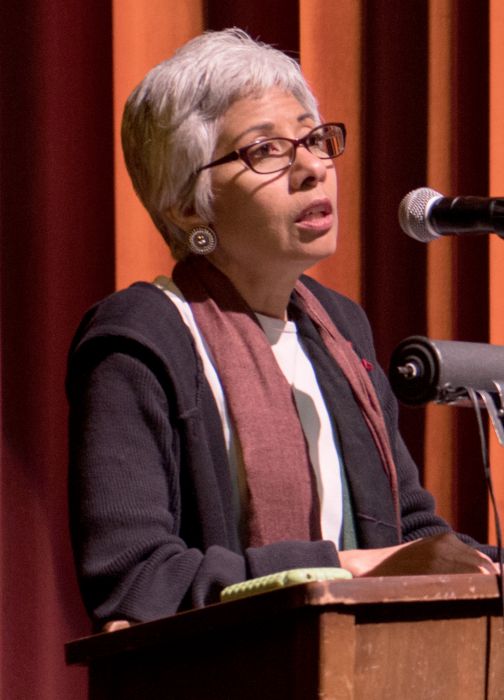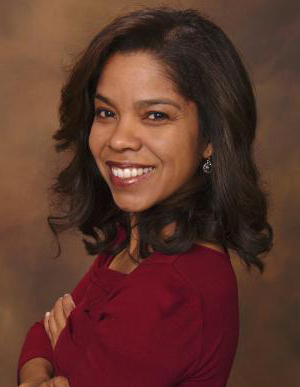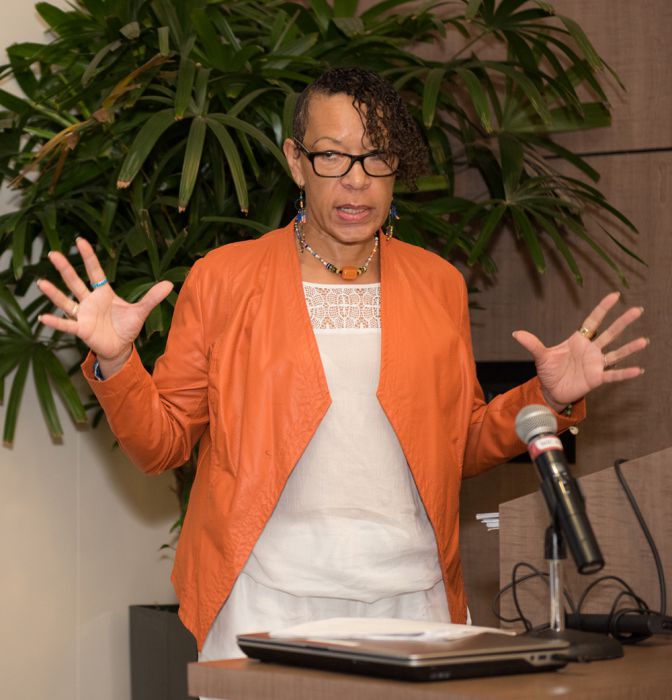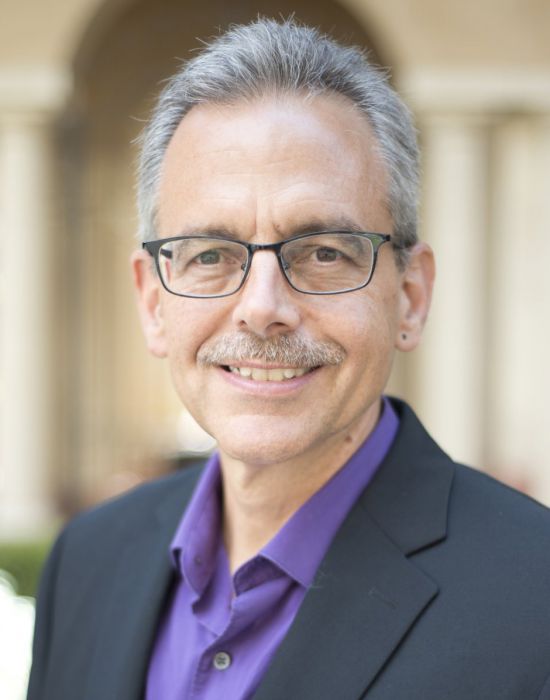
“Envisioning Transformation,” a two-day academic symposium that featured talks by nationally-recognized educators from Los Angeles County, explored ways for communities of color to come together to create social justice and harmony through resolute coalitions and transformative action.
Organized by the 50th Anniversary Watts Rebellion Commemoration committee, the March 22-23 symposium was a sequel to the fall 2015 symposium “Fire and the Quest for Transformation,” which explored the origins and impact of the Watts Rebellion.

Picking up where the fall symposium left off, the speakers shared research and insights that investigated history that was more multi-cultural and generational, as they illuminated potential paths to a more prosperous and unified future.
“Untangling Black and Brown Solidarity,” which was presented by Laura Pulido, professor of American Studies and Ethnicity at the University of Southern California (USC), explored how various groups experience racial and class oppression, and how these experiences differ among Latino and African-American communities. She also offered various frameworks for “understanding and problematizing interethnic solidarity.”
“Instead of conceptualizing Latinos and African-Americans as two separate and distinct groups, I want to encourage us to think about the extent in which they shape each other. I don’t mean erase the differences between the two groups, but complicate them,” said Pulido. “I think the value of complicating them is that it can lead us to new and productive political solidarity, which we are in dire need of if we are to achieve racial and economic justice.”
Gaye Theresa Johnson, associate professor of African-American Studies and Chicana/Chicano studies at UCLA, led the session “Spaces of Conflict, Sounds of Solidarity: Music, Race and Spatial Entitlement,” which was derived from her latest book of the same name. Similar in part to Pulido’s work, Johnson’s research focuses on spatial struggles among “Black and Brown freedom seekers in Los Angeles,” but focused on a distinctive account of the struggles and triumphs between the groups in Los Angeles.

Other speakers at the symposium focused on societal transformation based on economics, and change that is brought about by social disobedience powered by collective action, and that requires the banishment of long-held racist beliefs.
Cheryl Tawede Grills, professor of psychology at Loyola Marymount University, addressed racial injustice in policing in the U.S. and how African-Americans should confront ignorant beliefs about racial superiority “head on” during her talk “Breathe, Baby Breathe: Freedom from the Lie of Black Inferiority.” Her passionate presentation called for racial justice in policing and a “movement for emotional emancipation–freedom from the lie.”
Grills shared videos and images during her remarks–some going back over 100 years–that enabled the audience to explicitly see hatred perpetrated by law enforcement officers.

“This is a topic that’s near and dear to my heart because my people are dying. My people have been under assault for nearly 400 years,” said Grills. “This is not rocket science. If we can put people on the moon then we can stop racism. But we have to take the beast by the horn and deal with this issue [the inferiority lie]. … There has been countless attempts to condemn it and promote racial equality, but where do we stand? We stand at the bottom of every good list and at the top of every bad list. That’s the social reality in America.
“It’s really quite simple,” she added. “We just want to be allowed to be: to be who we are; to be unapologetically black; to be unapologetically African; to live our lives; to contribute to society; and to be part of the human race.”
The session “L.A. Story: Demographic Change, Economic Shifts and Community Futures” was delivered by Manuel Pastor, professor of sociology and American studies and ethnicity at USC. His research has generally focused on issues of economic, environmental and social conditions facing low-income urban communities, and the social movements seeking to change those realities.
Pastor’s most recent book, “Equity, Growth, and Community: What the Nation Can Learn from America’s Metro Areas,” which is co-authored with Chris Benner, argues that inequality inhibits economic growth and that achieving equity and growth requires resolute local action.

Melina Abdullah, professor and chair of Pan-African studies at CSU Los Angeles, and leader of a Los Angeles-based Black Lives Matter chapter, led the session, “Black Lives Matter and the Building of a Mass Movement.” Her remarks focused on her research into how “power allocation and societal transformation” are inextricably linked. The session was titled after an essay recently posted on KCET, and it is part of a series that documents about the Black Lives Matter movement and its future.
The symposium was capped with the interactive workshop, “Understanding Race and Racism in the Shadow of the Watts Rebellion.” It was facilitated CSUDH faculty Corina Benavides-Lopez, assistant professor of Chicana and Chicano Studies; Justin Gammage, assistant professor of Africana Studies; and Carolina San Juan, lecturer in the Asian Pacific studies program.
The workshop was followed by a reception in the University Library Cultural Art Center and tour of the exhibits “Watts Now: a Student Exhibition” and “Watts Then,” an archival exhibit by Greg Williams, director of Archives and Special Collections at CSUDH.